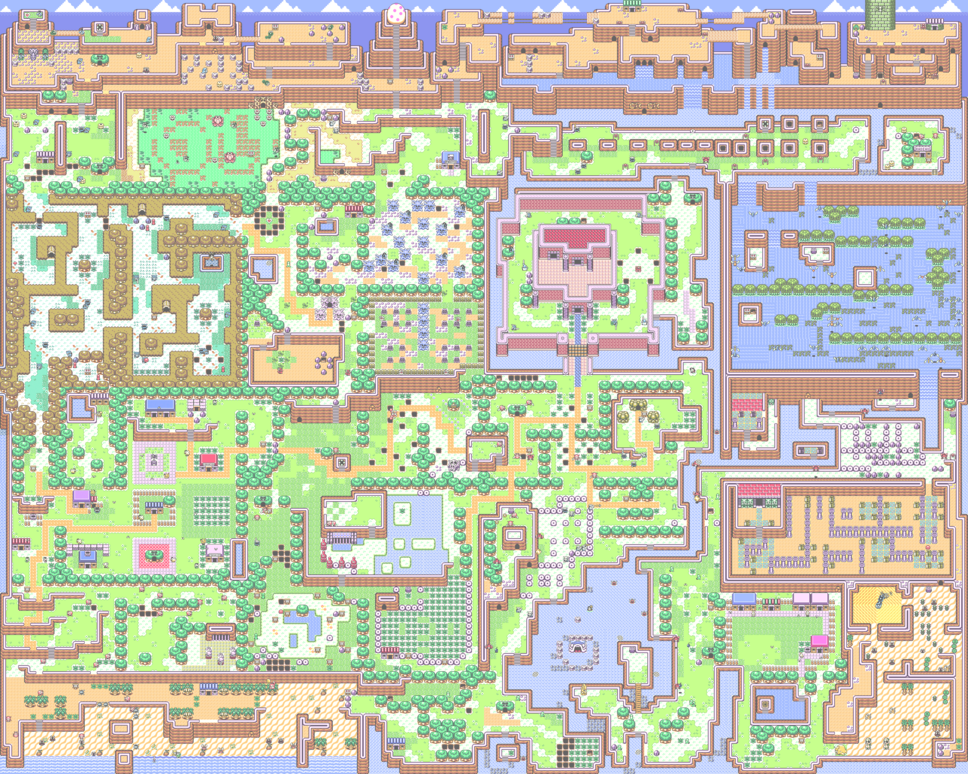
@coolboymew I only know basic assembly (MIPS) from college. It's much more different than other languages. You don't even have variables. You manually load values to registers on the CPU and then you can store them on a certain RAM address.
@coolboymew I know VBA allows you to see the games RAM, tiles, and disassembly. Pretty sure most SNES emulators have them as well.
@coolboymew I never messed with a GameShark, but I assume they let you see what functions are called at certain frames, granted they would all be in hexadecimal but you will see patterns and get a general idea.
@coolboymew I guess you had to hope your game had a sound test or a debug menu so you could record the audio that way.
@coolboymew The N64 music library has been dumped for a long time, but it was mostly songs that appear in the actual game. Trying to find unused content has been extremely difficult until recently.
@coolboymew
I know next to nothing about SNES/SFC music. Those soundfont remixes I made a while back were made from downloading converted MIDI files.
Ripping audio from N64 ROMs seemed to be tricky until recently. For a long time, the only way to rip audio for N64 games (assuming they used the "standard" format) was through some abandonware tool that was difficult to find. You better hope that your favorite game had a debug menu or a sound test that you could access.
VGMTrans seems like the best tool for ripping synthesized music from video game ROMs, especially DS games.
@coolboymew If you're tech savvy, you could just rip the audio of games you own by dumping the ROMs and extracting the audio. It falls under fair use.
https://activistpost.com/2024/10/brics-unveil-the-new-new-world-order-new-world-next-week-with-james-corbett-and-james-evan-pilato.html
@PurpCat @lanodan @coolboymew @noyoushutthefuckupdad Even Nintendo, who is notorious for developing most things internally and being very secretive about the development of their games, are using engines like Unreal for games like Yoshi's Crafted World and Pikmin 4. Even Unity is used for more recent Pokemon games, but that can be excused for GameFreak being mediocre programmers.
https://activistpost.com/2024/10/indian-silver-demand-drives-record-prices.html
https://activistpost.com/2024/10/the-real-monsters-of-street-level-surveillance.html
https://naturalblaze.com/2024/10/chocolate-the-candy-with-powerful-medicinal-properties.html
@lanodan @PurpCat @coolboymew @noyoushutthefuckupdad
>That said I think it's worth it for indie games to have some kind of Unix-like support (or retro-platform support lol) because they have strong communities so word of mouth likely works much better than doing yet-another Windows/Android release.
Only problem is that most indie developers don't write their own engines and most of those engines don't support BSD. Maybe if more and more people switch to Godot, we would probably see more.
@djsumdog @mangeurdenuage I thought it would be better because vegetable oil is a better conductor of heat.
@djsumdog @mangeurdenuage Scratch that. That shit will rot and smell in there.
@djsumdog @mangeurdenuage Vegetable oil?
@PurpCat @lonestarr @Owl @coolboymew @noyoushutthefuckupdad I know that SFML (which I currently use) is available for FreeBSD, but I've heard that a lot of BSD users already run native Linux games on BSD just by swapping library files or something like that, given how similar it is to Linux. Apparently, it's very easy to do that with MonoGame and FNA games despite neither of those officially supporting BSD.
@PurpCat @lonestarr @Owl @coolboymew @noyoushutthefuckupdad The market is over-saturated. Everyone who has skimmed a programming text book is making their own game now. You need to be really unique or drown in the endless sea of shovelware, no matter how good your game is.
I thought about getting at least a cult following by porting my games to obscure operating systems like BSD or Haiku. There is probably an audience for people who want to play something other than Tux Racer on those platforms.
- Sex
- Male
- Primary OS
- Linux Mint
- Programming Languages
- C/++/#, Python, Java, JavaScript, PHP, SQL, Assembly
- Personal website
- https://xianc78.codeberg.page/
